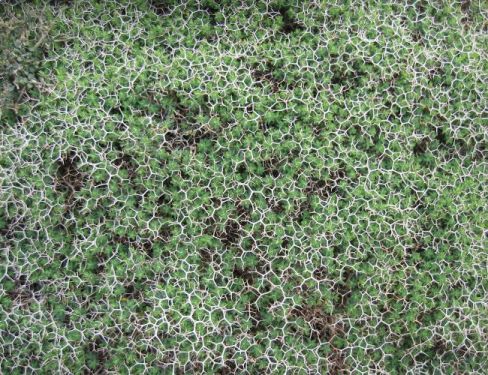Researchers from the Ariel University Center found that the roots of the prickly pear reduce the symptoms of diabetes

The roots of the prickly pear were found to have a positive effect on preventing the symptoms of diabetes, these are the findings of a study conducted in the laboratories of the Department of Molecular Biology at the Ariel University Center in Samaria, led by Dr. Tobit Rosenzweig.
The group of researchers tested the effect of the extract extracted from the roots of the prickly pear plant on the symptoms of diabetes. Diabetes is a chronic metabolic disease in which there is an absolute or relative lack of the hormone insulin, which leads to an increase in the level of glucose in the blood. The morbidity rate of diabetes has increased dramatically in recent decades. Today the disease is considered an epidemic. As a result of the disease, various complications develop among those with it, such as blindness, cardiovascular diseases, kidney diseases, and more. Natural medicine offers a number of traditional herbs for the treatment of diabetes. Most of the information has not yet been verified with scientific tools.
One of the prominent plants offered in Bedouin medicine for the treatment of diabetes is the Sarcopoterium spinosum, the spiny sera, a common and typical plant in the open areas of the Mediterranean mountains.
In the first stage, working in cell culture of tissues such as muscle, fat and liver, which are involved in the metabolism of glucose, which is affected by diabetes, it was found that the plant extract of the roots of the thorny sira has an effect on these tissues, which is equivalent to insulin. In a second step, the extract of the roots of the prickly pear was given to mice developing diabetes (type 2), due to a genetic mutation. Drinking the extract prevented the development of the disease in them, compared to control mice.
The discovery was recently registered as a patent, and the researchers are currently looking for the active ingredients in the extract, where their hope is to find a natural-based drug treatment for diabetes.

6 תגובות
response to commenters,
The patent will be on a medicine that will be developed, and not on the plant itself - you can relax.
What's more, the Bedouin community will be able to demand some kind of royalties, like the descendants of the tribes in Africa (I don't remember where exactly) will receive royalties for the "thank you" cactus plant that causes weight loss.
Concerned citizen:
Ignorance is what probably causes your concern.
I will not explain to you once again what I have already explained to you here:
https://www.hayadan.org.il/z-cube-and-yisum-2805095/#comment-220347
They also wanted to register patents for thinking operations at the time...we didn't let them
The damage that patents cause to human society is enormous if we were a logical society but maintain some principle of punishment even if very weak everyone who earned a dollar from a patent to guillotine and castrate all the offspring.
Whoever registered a patent for this can have this funny patent deleted, time will tell,
Regarding the production of various substances, including a substance that can replace insulin, this is known to me and others, at least those with whom I have been in contact for over 40 years, I have friends who drink various extracts, among them the extract from the root of this plant, and do not take any chemical substances for diabetes, so there are substances for the liver, To reduce the fat in the liver, to remove edema from the habits and more, the researchers here simply wanted publicity, or they don't live in this world, there are dozens of types of roots and plants that nicely replace all these drugs and have an excellent effect and the main thing is that they work better than the chemical drugs,
The "University Center" appoints the public by name - this is their invention, the Higher Education Council did not qualify it, but due to its location in the territories, it is not subject to its decisions.
How is it possible that a material produced according to the knowledge of folk medicine will be registered a patent????
This knowledge belongs to the people, the researchers did not discover any new information, they confirmed the correctness of the popular knowledge accumulated over hundreds/thousands of years.
There is no right to register a patent on this knowledge that limits the use made in folk natural medicine